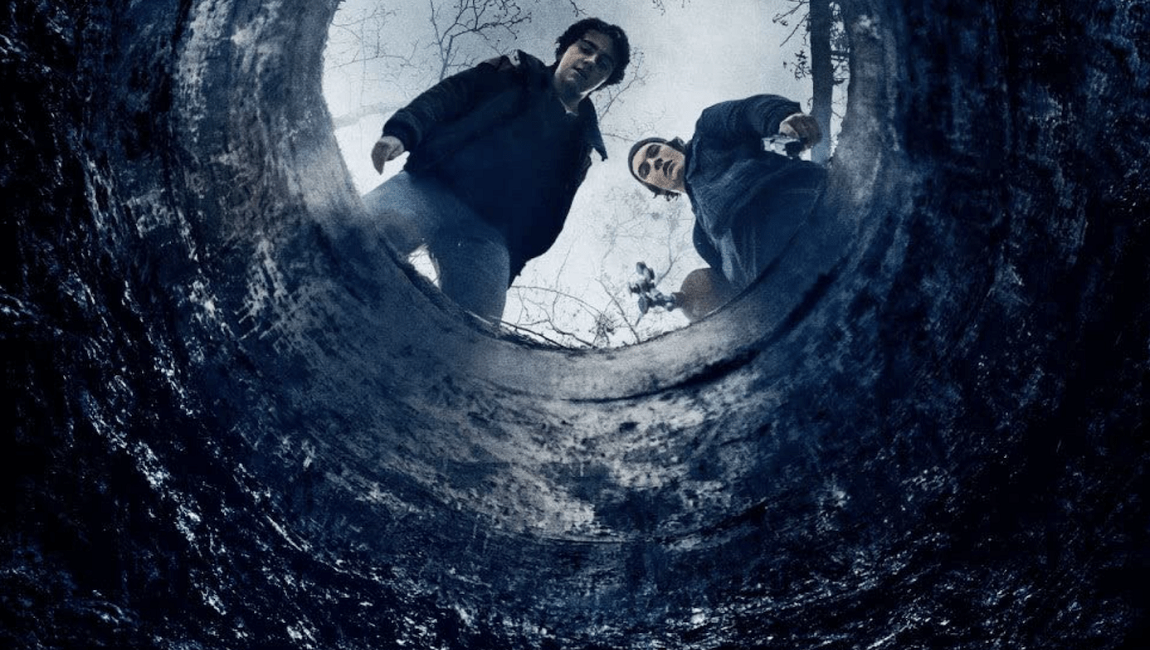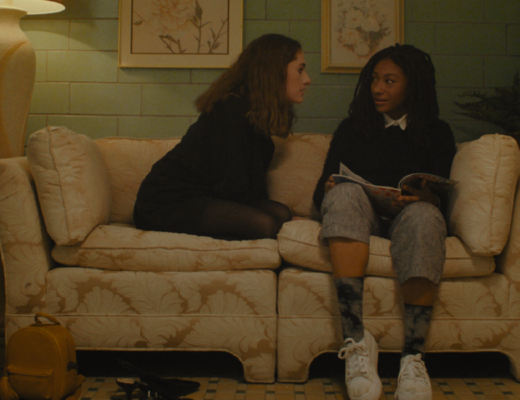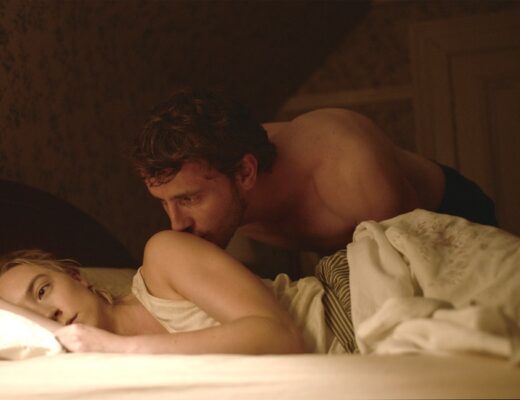Bonello’s attempt to meld cultural commentary with a historical consideration of colonialist sins is lost amid a commitment to tension-building.
Voodoo, as represented in Zombi Child, is a religion of opposing functions that ties together life and death in a volatile form of spirituality, though it isn’t until the film’s conclusion that this becomes clear to us. Its narrative proceeds by juxtaposing two stories, different in their temporal and geographical setting but which (superficially) unify to present life and death as brought about through the practices of voodoo. One takes place in Haiti in 1962 with the funeral of a man named Clairvius who soon rises again through the power of voodoo to become a zombie, forced to work in the fields even past his death with no mind to give him autonomy. The second situates us in the company of a girl’s sorority at a prestigious all-girls school; one of the members, Fanny, befriends a Haitian girl, Mélissa, who lost her parents in the 2010 earthquake and invites her into their group, soon becoming aware of her connection to the alien religion of voodoo. Until the denouement, we’re necessarily limited in our perspective because of our being tied to the conception of voodoo contrived by the European girls’ brief internet searches.
Director Bertrand Bonello builds tension in this sense by framing Mélissa as a possible threat; indeed, her otherness and connection to the terrifying representations of zombies the girls have seen suggests an antagonism which finds its way into her own perspective, comporting to her European friends’ fears of her and, in a brief daydream, assuming the role of zombie to take a bite out of her friend’s cheek. This can be considered problematic in its reduction of cultural differences to a method of trite tension-building, but it does open up into a slightly more nuanced understanding of voodoo – albeit one where ‘zombies’ are always questionably foregrounded. Once Mélissa’s aunt, Katy, is introduced we’re informed of voodoo’s purpose beyond the creation of zombies, learning of its communal aspect and ability to allow the living to interact with deceased friends and family, yet Fanny forces her own relatively trivial problems upon Katy to make clear the metaphorical underpinnings of her role: that respect is not something this European is capable of in her dealings with the otherized religion of voodoo. Here, the Haitian story takes better shape, tying together Clairvius’ journey from a victim of voodoo to his eventual emancipation, concluding in a place quite different from the present-day story where Fanny’s folly inadvertently condemns Katy to the supernatural consequences of the religion. It’s obvious that Bonello has a clear conception of the social commentary at work here, but the connection between his parallel stories remains spurious and his need for tension reduces the effect of any cogent statement one can parse out.
Published as part of January 2020’s Before We Vanish.







